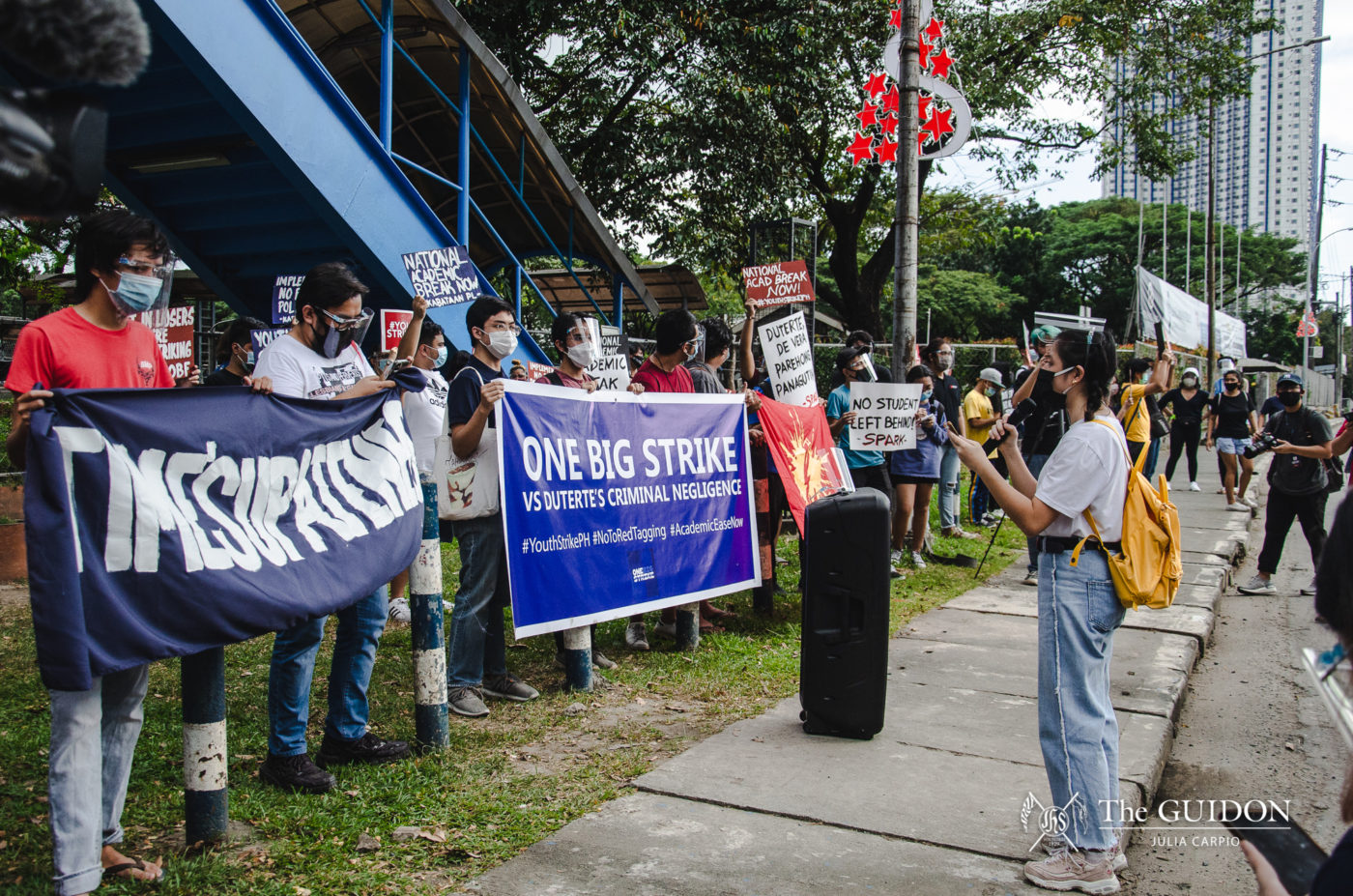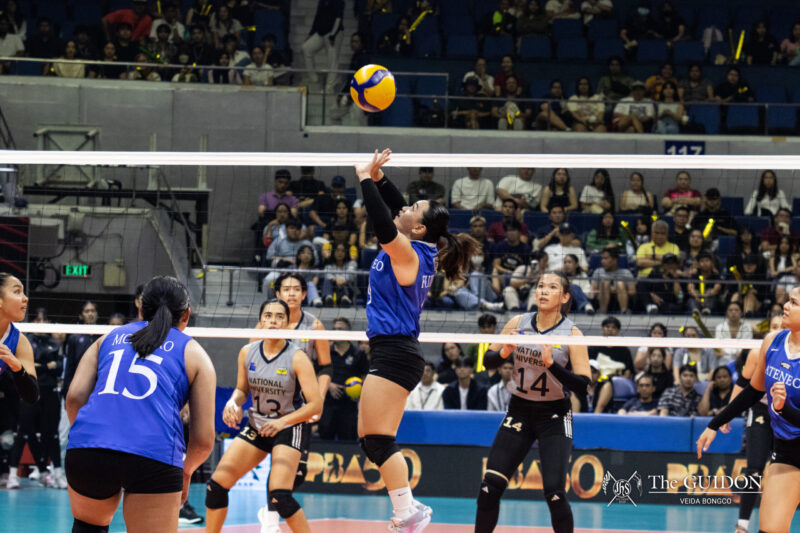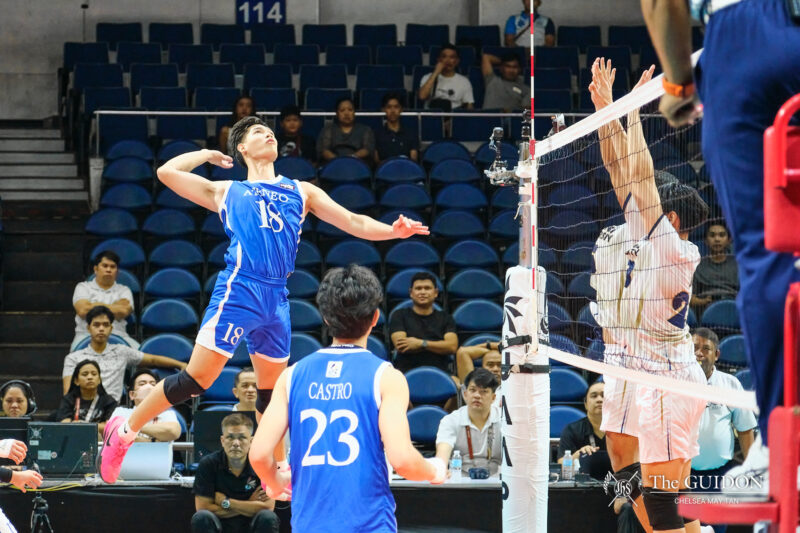After some Loyola Schools (LS) students initiated a mass student strike in the previous semester, The GUIDON released a constituency check on November 22 to collate the community’s feedback on the strike. The Sanggunian also previously released a binary choice survey about the initiative on November 16.
The GUIDON survey incorporated open-ended questions and Likert scales to probe specific parts of the petition and attain detailed responses beyond the limited yes or no options of the Sanggunian surveys. It also contained questions about the respondents’ demographics and socioeconomic conditions, which were not included in the previous Sanggunian constituency checks.
With a 20% correspondence from the Loyola Schools student body in the Sanggunian constituency check, the survey results revealed that 46.8% of students supported the revised mass student strike petition’s stance. Meanwhile, The GUIDON constituency check accumulated 138 responses, with 77% of respondents for the petition and 25% of this population having no reservations regarding the academic strike’s effects on the LS community.
In sum, students across all demographic and socioeconomic backgrounds expressed similar concerns with the strike’s “vague” goals, demands, and action points, as well as the possible repercussions for striking.
Overall results
In The GUIDON’s survey, 132 students accounted for 95.7% of the respondents while six faculty and staff members amounted to the remaining 4.3%. 75% of the student respondents were part of the Council of Organizations of the Ateneo, while the rest came from the Scholars’ Sector, the League of Independent Organizations, the Sports Club Sector, and the Ateneo Resident Students Association.
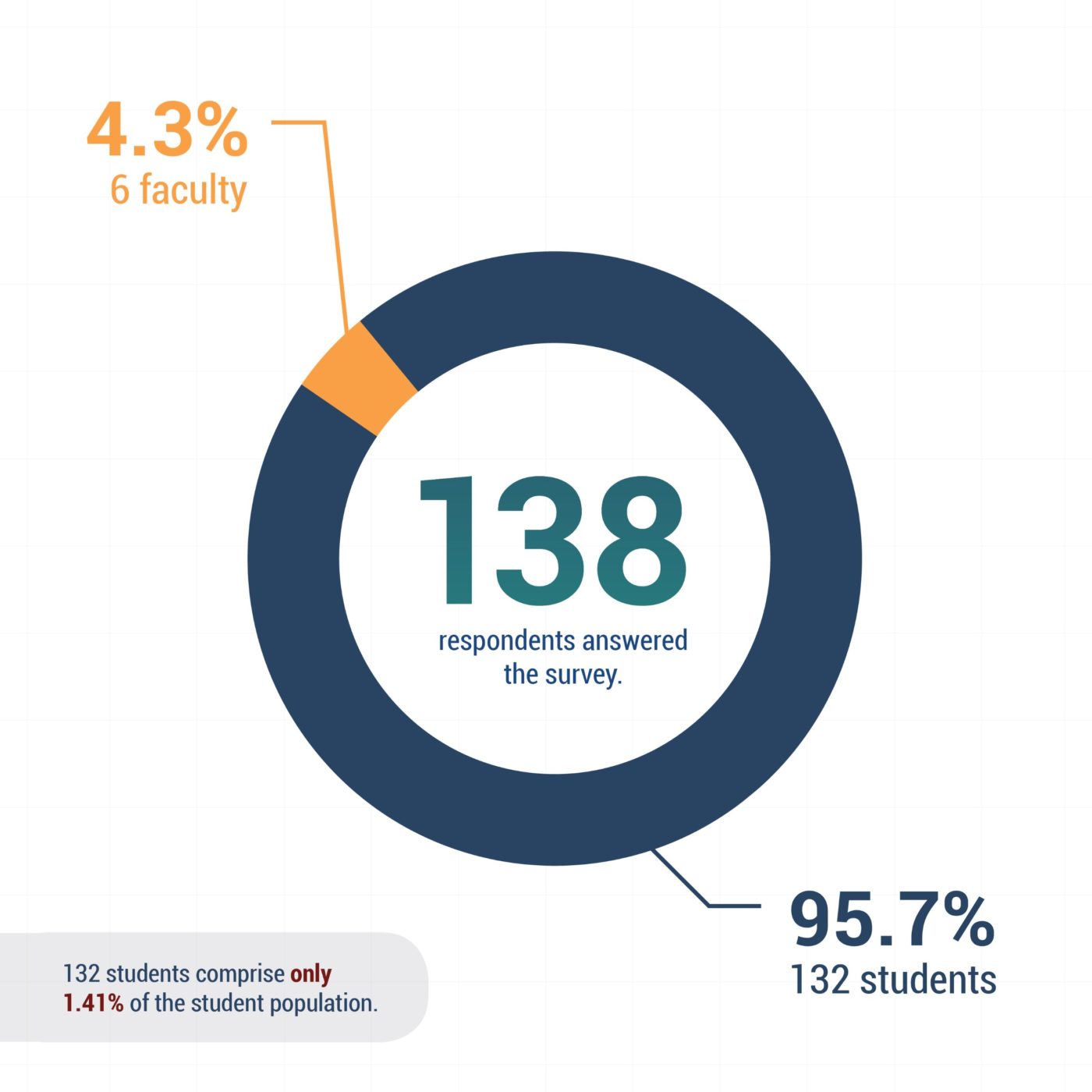
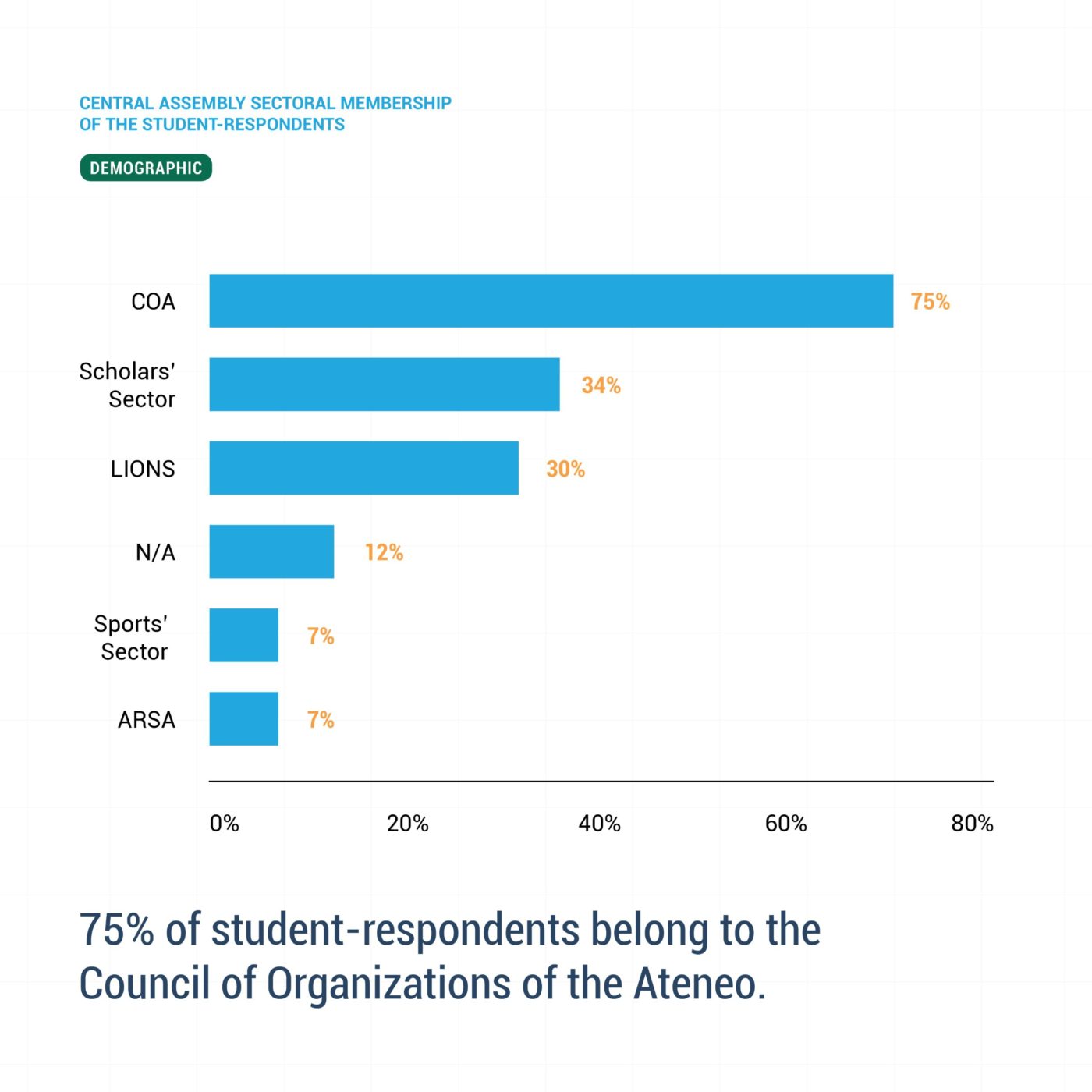
The GUIDON used the Chi-Square Test of Independence to determine that only source of income had a significant relationship with the respondents’ overall vote.
All students with an annual household income of less than Php 250,000 were for the petition, with 63% of them supporting the petition with reservations. Meanwhile, 44% of students with annual household incomes of Php 400,001 to Php 800,000 were against the petition, while 28% remained opposed with reservations.
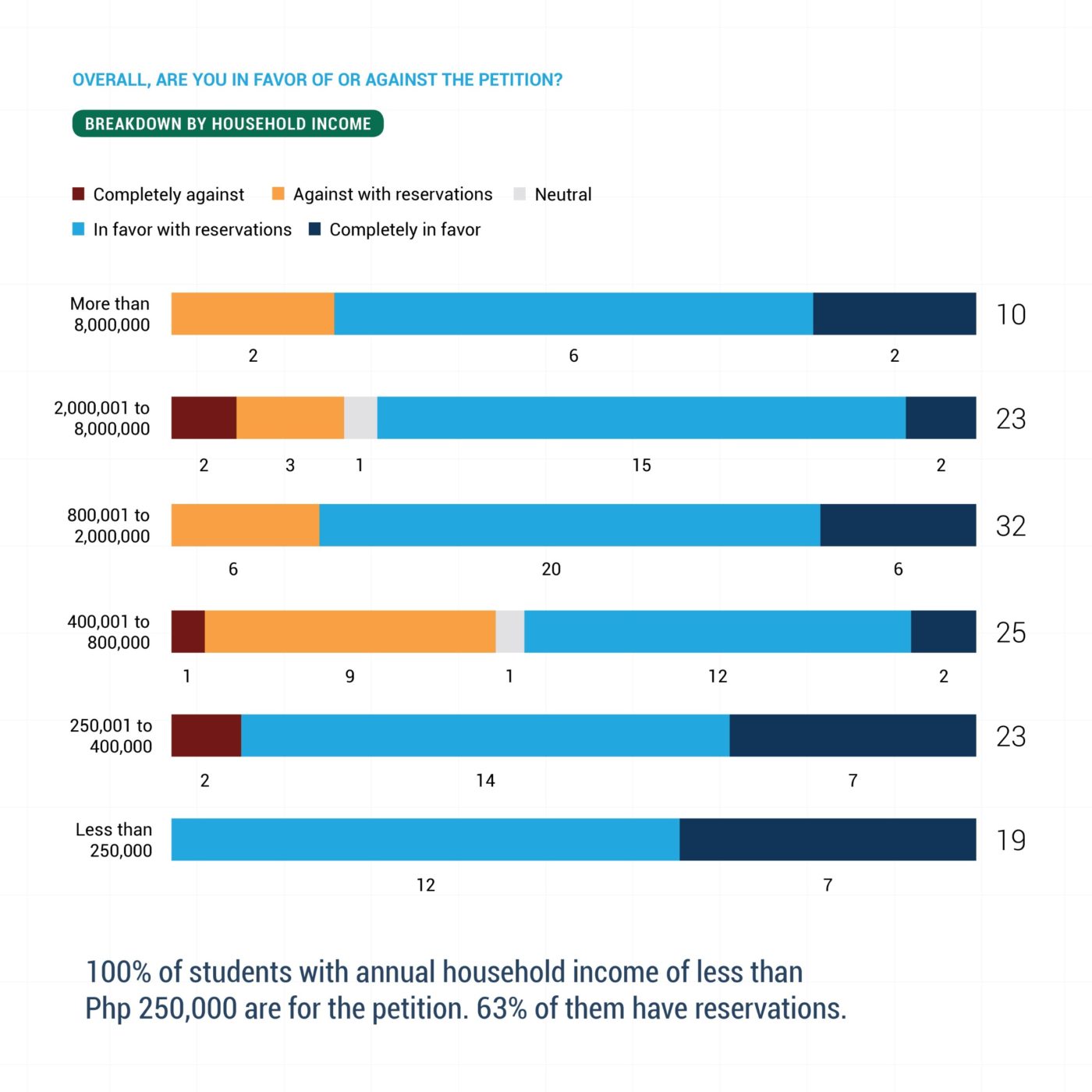

Students and faculty supported the strike’s demand for the national government to respond appropriately to the COVID-19 pandemic and the recent calamities, which emerged as the most pertinent demands in the survey’s ranking scales. Meanwhile, both parties ranked the no-fail policy as the least pertinent demand.
With this, 71% of respondents were in favor of the petition’s demands for the Sanggunian, while 64% were in favor of the petition’s intended actions and efforts.
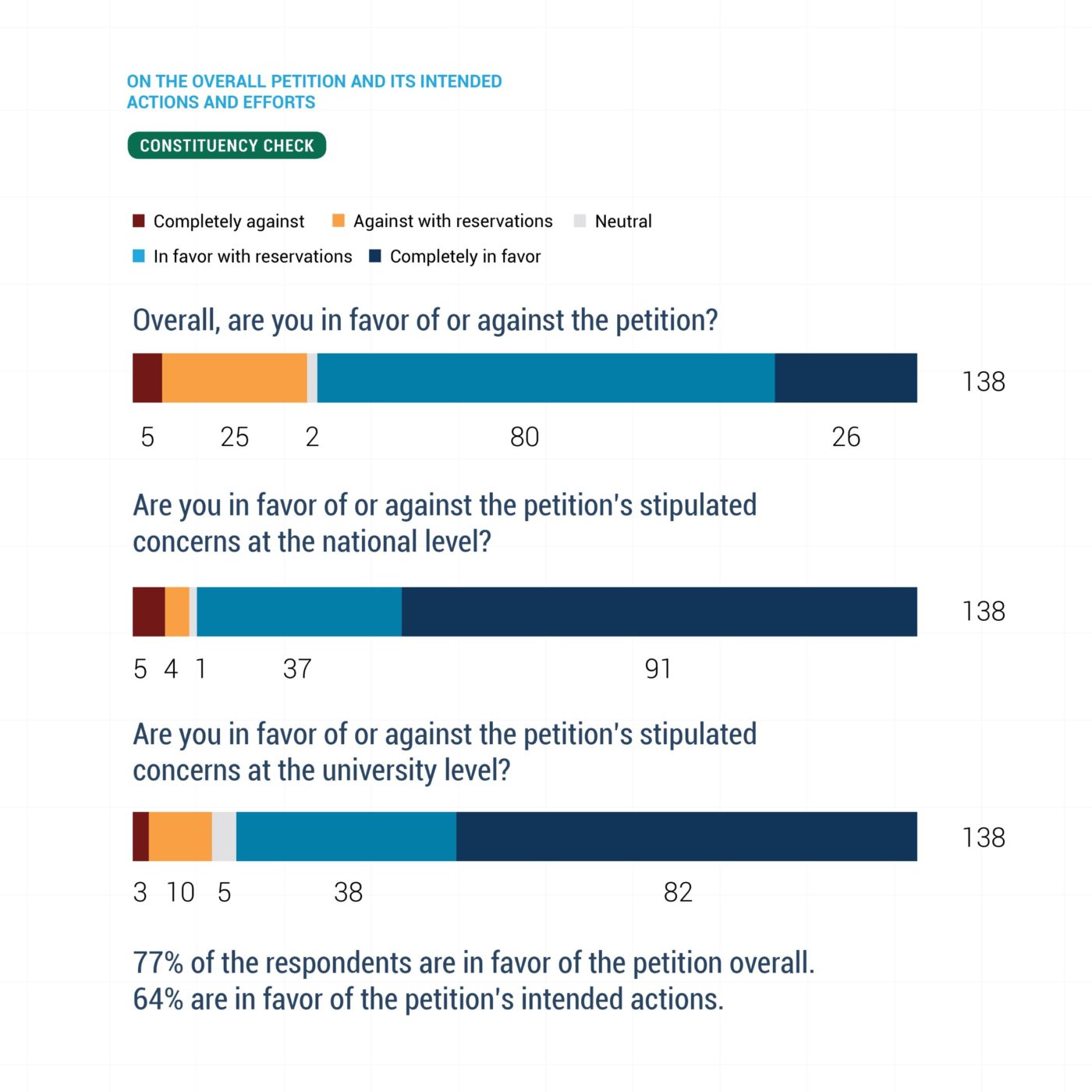
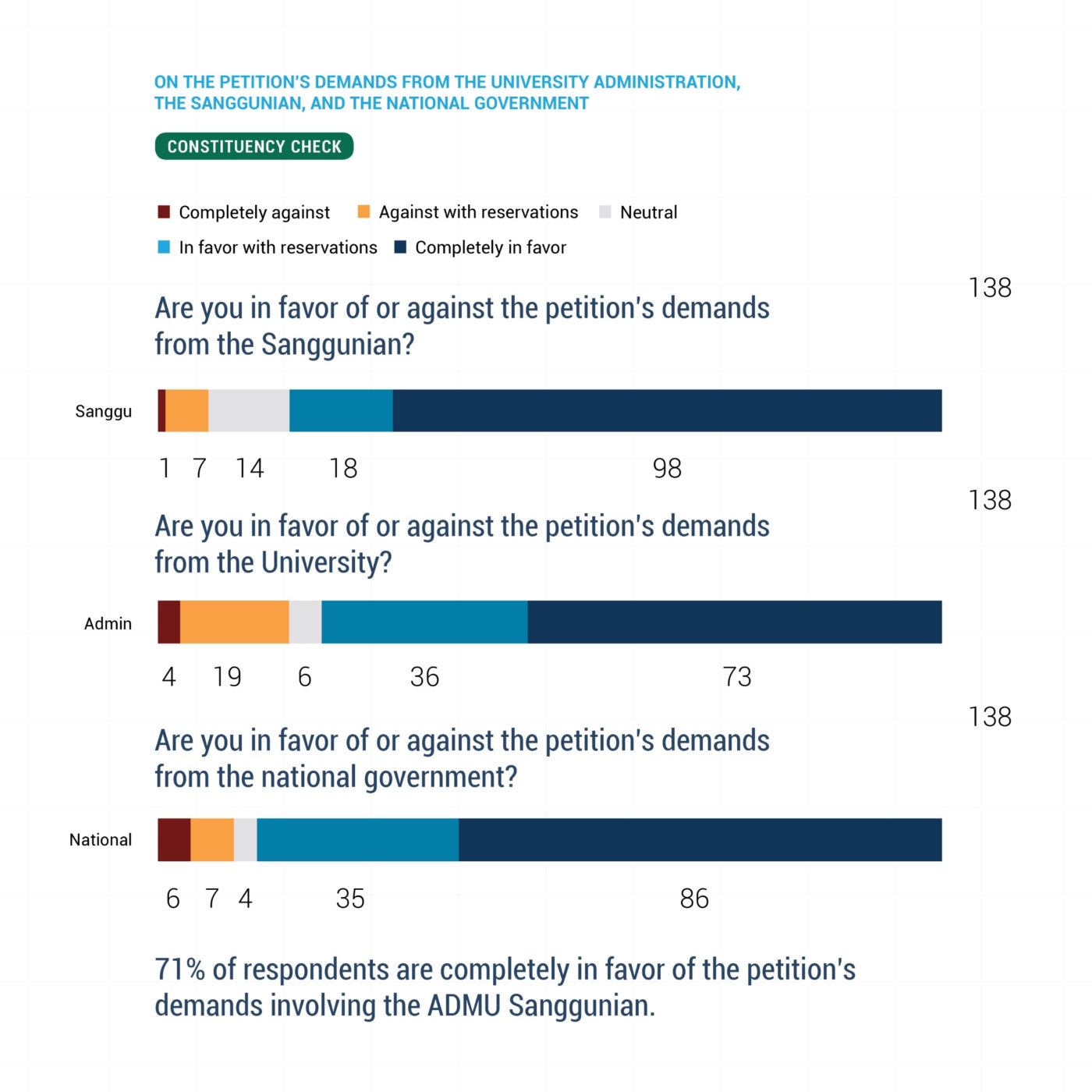
The results also showed that 53.8% of student respondents would participate in the mass student strike if the petition will be revised according to the concerns they raised in The GUIDON constituency check.

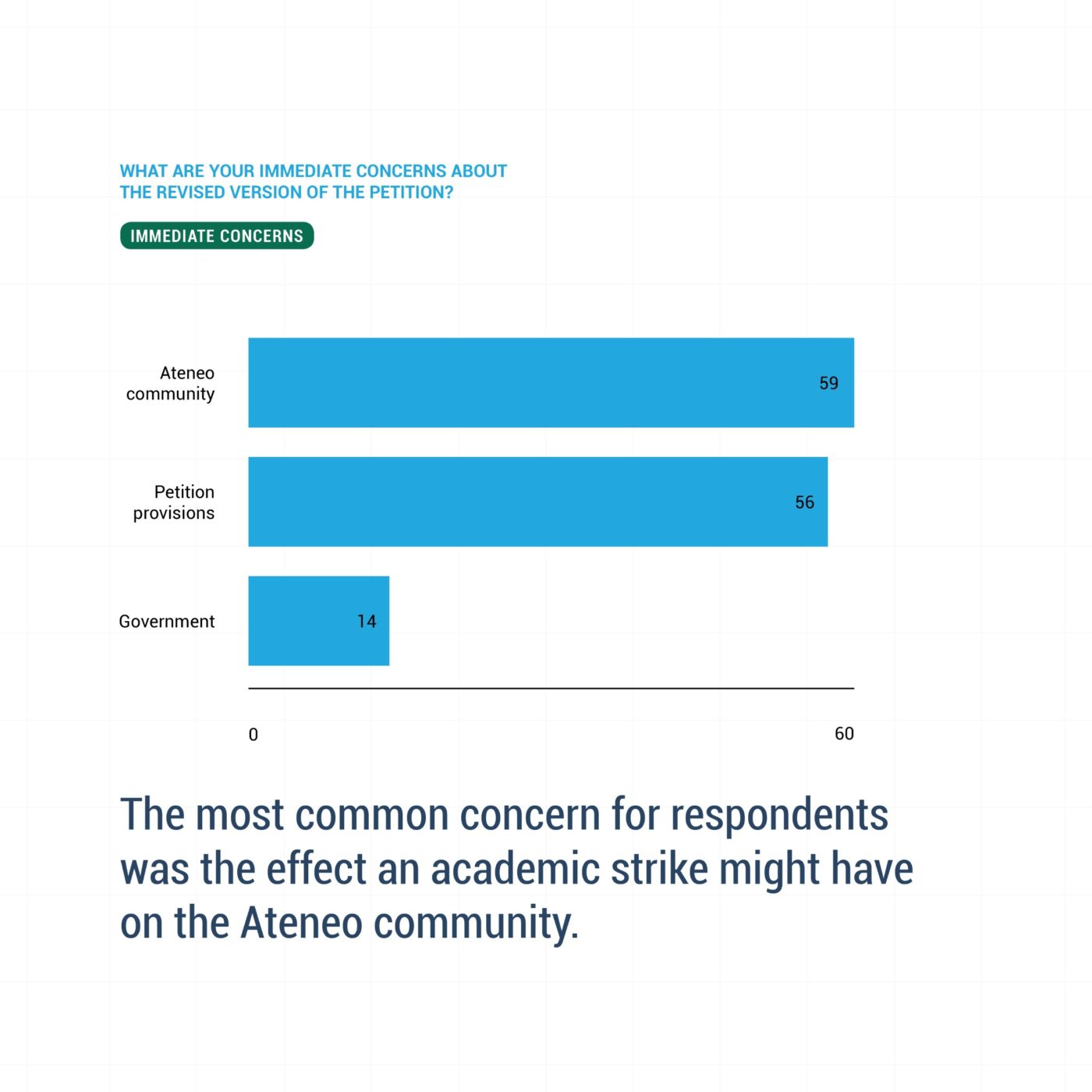
Common concerns
Only 13.6% of the student respondents said that they would participate in the strike based on the current petition. These reservations most commonly stemmed from concerns regarding how an academic strike would affect the whole LS community.


More specifically, the respondents’ most common concern was the academic strike’s possible consequences on students’ academics and learning. The majority of the respondents recognized that an indefinite strike might negatively impact the growth and education of students, especially scholars. Other students detailed that an indefinite strike was a wasted opportunity to learn, particularly for those with the means to continue online classes amid the pandemic.
They also said that the no-fail policy’s parameters lacked clarity and required concrete examples based on the current context. Some respondents added that the lack of letter grades would make maintaining scholarships and pursuing further education after graduation difficult.
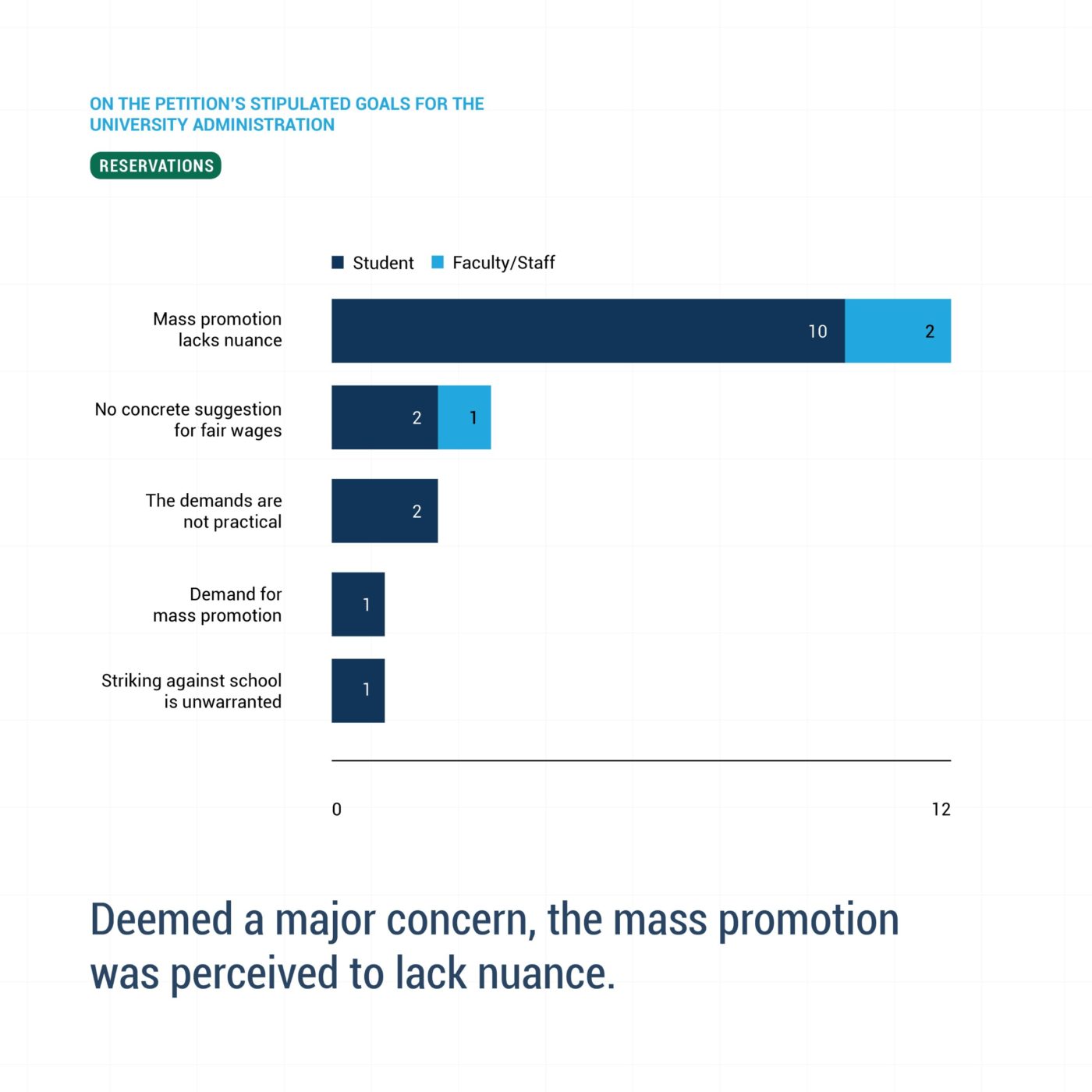

Meanwhile, others asked whether tuitions would be partially or fully refunded in the event that the strikers’ demands are met. They also noted that an indefinite strike could affect the wages of faculty members.
The second most common concern was the way the petition’s provisions were written. Many felt that the provisions were vague, misaligned, and unrealistic, citing the petition’s unquantifiable goals and lack of performance indicators.
56 respondents particularly felt that the petition lacked clarity in its concerns, demands, and success measures of resulting actions. Four students added that there was a lack of proper dialogue, as the current discourse in the University is not representative of the entire student body.
The third most common concern was the petition’s ineffectiveness in eliciting a proper response from the government, with 14 respondents noting that the government has already dismissed past pleas for governmental reform.
Others also said that public officials might not respond to the strike because they are not directly affected by LS students disregarding their academic requirements. Some respondents were concerned about strikers facing red-tagging and other retaliatory actions from the government.
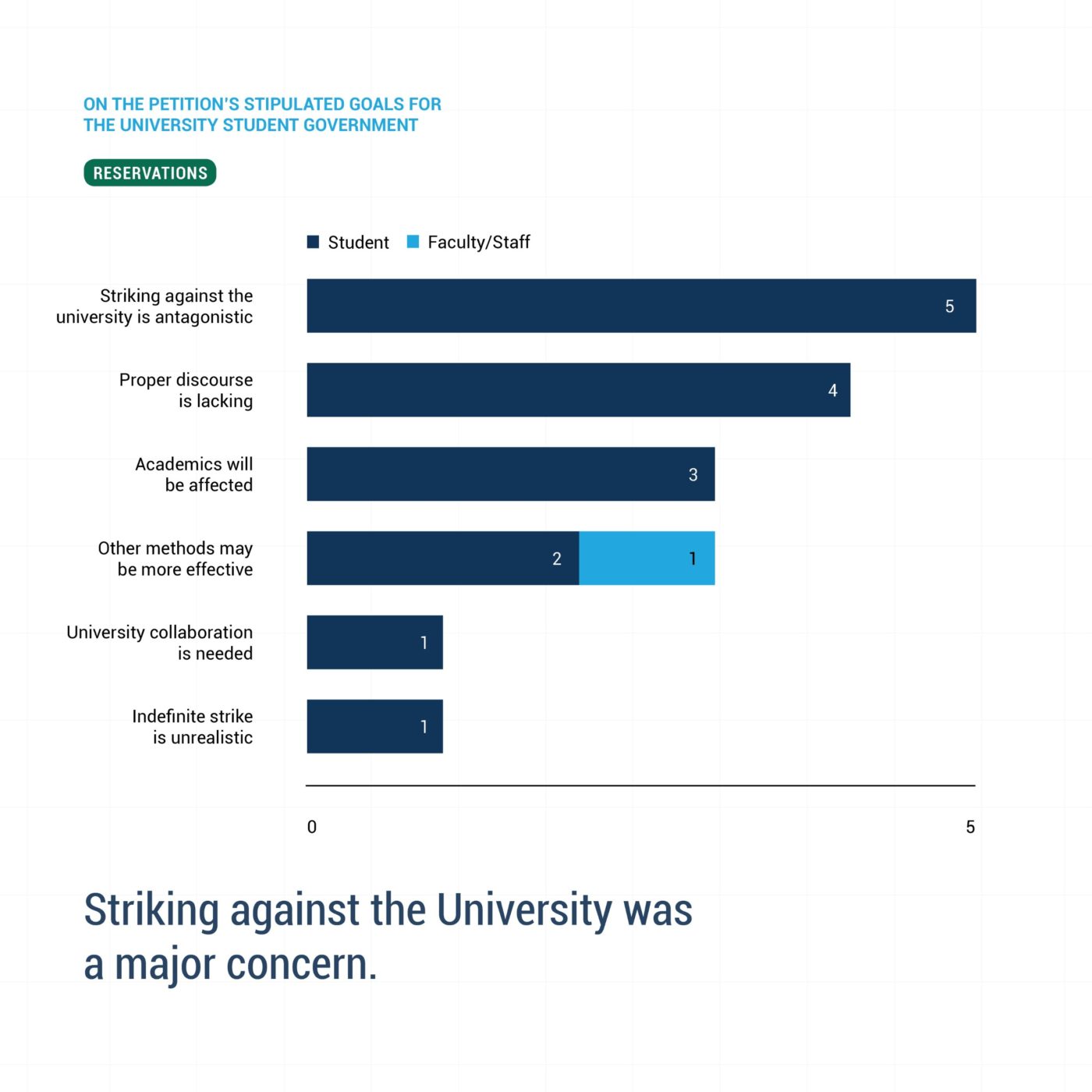
Aside from these three main concerns, five students shared that striking against the University is unwarranted and “too antagonistic.” They explained that the administration has already shown leniency by suspending all synchronous and asynchronous activities until November 21 following Typhoon Ulysses.
Suggestions for moving forward
Overall, respondents were divided as some expressed the need for an academic freeze given the non-conducive learning environment, whereas others felt that students should maximize their education so they can serve society after graduating. In addition, many expressed concerns about the course of action taken as they believed that other alternatives could be explored.
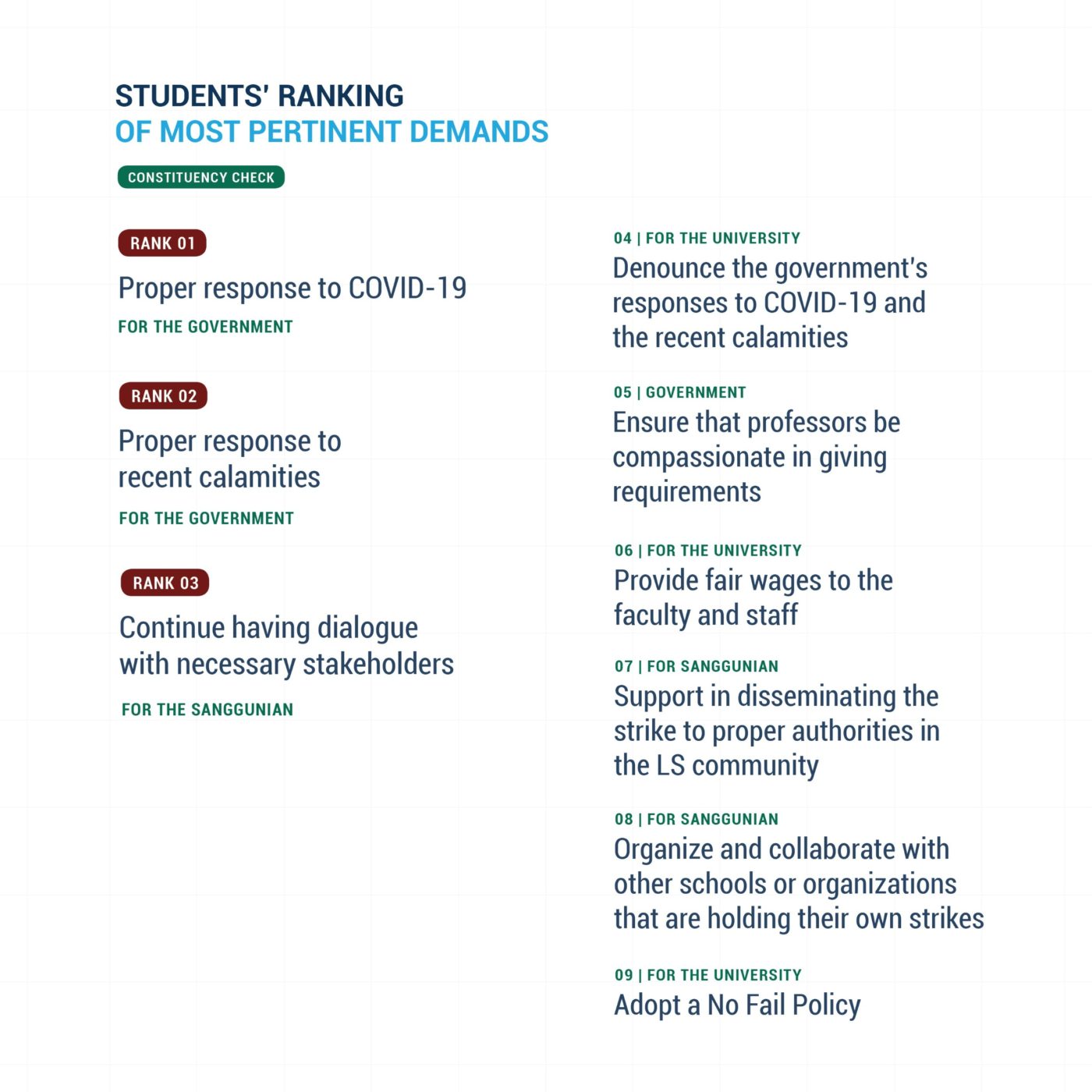
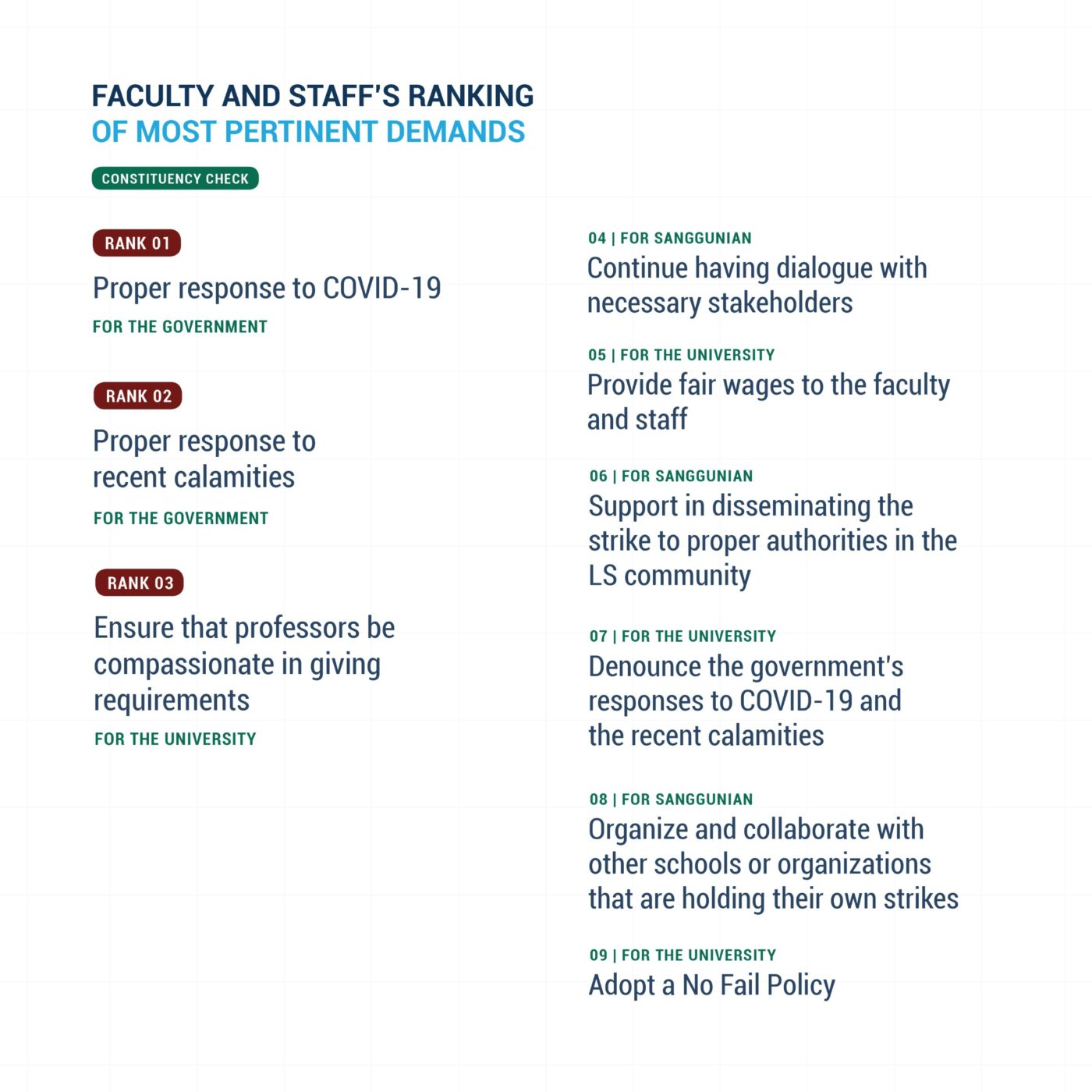
With this, they recommended LS to collaborate with other universities to amplify the petitioners’ demand for governmental reform. They also called for an ouster of the government amid allegations of “criminal negligence.”
Some respondents suggested the petition to include a partial tuition refund and an acknowledgment that the University has already made strides to help students and other concerned sectors.
They also recommended the improvement of learning conditions, as the current online setup is harmful to students’ mental and physical health. Likewise, they felt that the online setting did not provide the quality education students needed.

